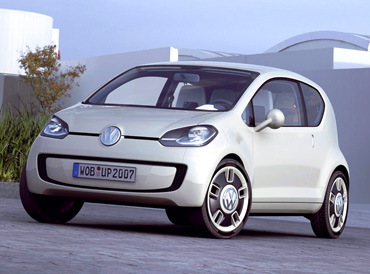
PARIS – Although Faurecia SA lost €364 million ($517 million) in the year’s first half, the global recession actually may be benefitting suppliers, says Faurecia CEO Yann Delabriere.
“Auto makers are fighting for their (own) survival, but they fight even more for the survival of their suppliers,” he says, noting price negotiations are easier now than ever before. “We are in a dialogue of understanding, and today we find good solutions with our clients.”
In the past, auto makers often paid back the cost of supplier engineering and tooling as an addition to the piece price, but when volumes were not up to expectations, suppliers ended up with losses.
Now, says Delabriere, most of Faurecia’s customers are willing to pay development costs soon after they are incurred.
Part of that change is because French politicians orchestrated a deal between suppliers and auto makers that includes faster payment for engineering and faster payment, in general, for parts.
Suppliers furnish more than 70% of the value of an automobile, and auto makers want healthy suppliers they can count on.
“When a factory like Aulnay has no seats for one and a half months, that’s a problem,” says Delabriere, firing a salvo at competitor Lear Corp.
Automobiles Citroen’s plant in Aulnay, France, assembled 10,000 Citroen C2 and C3 cars in May and June without seats due to a strike at Lear.

While auto makers have delayed some projects, there will not be a lull in innovation, Delabriere says. “The auto industry is 80% product. There will be fewer platforms, but they will be more global. And auto makers are changing with the market, developing fewer big cars and more small ones.”
Faurecia’s top customers – Volkswagen AG, PSA Peugeot Citroen, Renault SA-Nissan Motor Co. Ltd., BMW AG and Ford Motor Co. – account for 80% of sales.
Delabriere notes Ford has just added Faurecia to its Aligned Business Framework of preferred suppliers. Faurecia also is working extensively with Volkswagen on the auto maker’s global Up! minicar platform, for which Faurecia will supply the seats, cockpit and front end.
More than in the past, customers are willing to pay suppliers for innovation, Delabriere says. To that end, Faurecia is continuing research during the recession, in particular with a recent investment in a new development center in eastern France for exhaust systems.
Auto makers are developing new engines to meet Euro 5 and 6 emissions regulations, and aftertreatment is a key component of these powertrains.
CSM Worldwide forecasts production volume in the year’s second half will decline 1.4% in Europe and 20% in North America.
Delabriere says he expects Faurecia’s second-half sales to fall 10% in Europe and 35% in North America, because the volume mix is skewing toward smaller, more fuel-efficient vehicles.
He is not clear how Chrysler Group LLC and General Motors Co. will fare as they re-launch their operations. In the first half, Faurecia did €38 million ($54 million) worth of business with Chrysler and about €80 million ($114 million) with the former General Motors Corp. in North America.
On the financial side, Faurecia cut costs by €400 million ($568 million) in the first half and aims to slash an additional €300 million ($426 million) in the second half.
Delabriere says Faurecia could end up close to even in the second half, with a positive cash flow except for an anticipated €80 million to pay for more restructuring layoffs.
Faurecia expects a slow recovery to begin next year, and Delabriere says the supplier likely will purchase some competitors toward the end of the recession.
“In a mature industry, you have to be a leader in your area,” he says. “If we look for partners, it will be to reinforce our areas, not to go into new ones. We will look for maximizing industrial synergies.”




